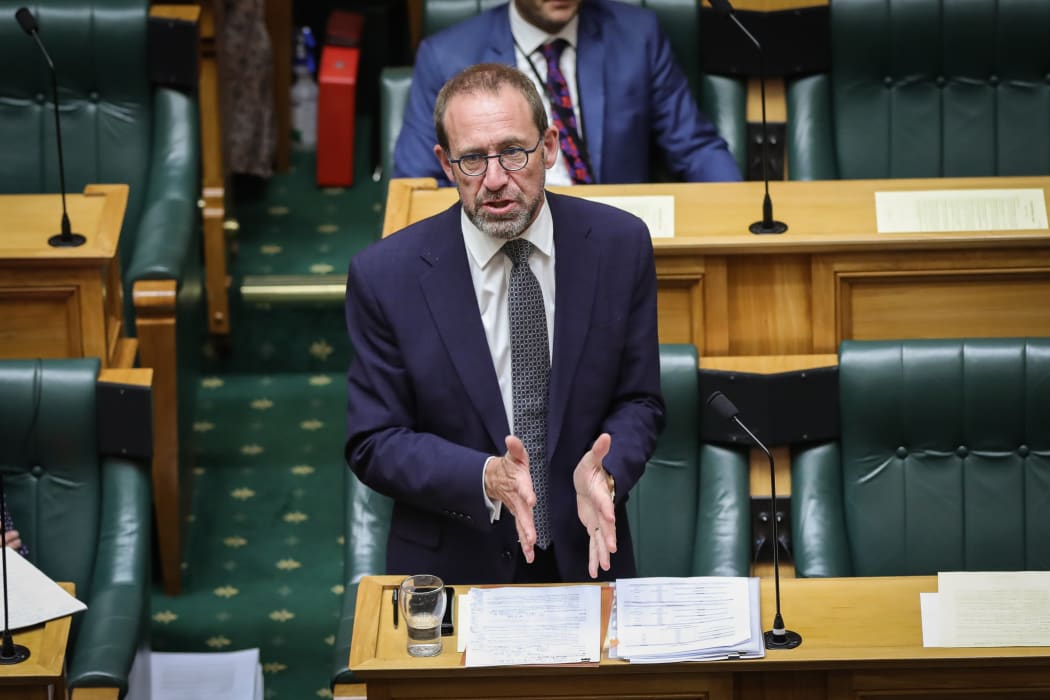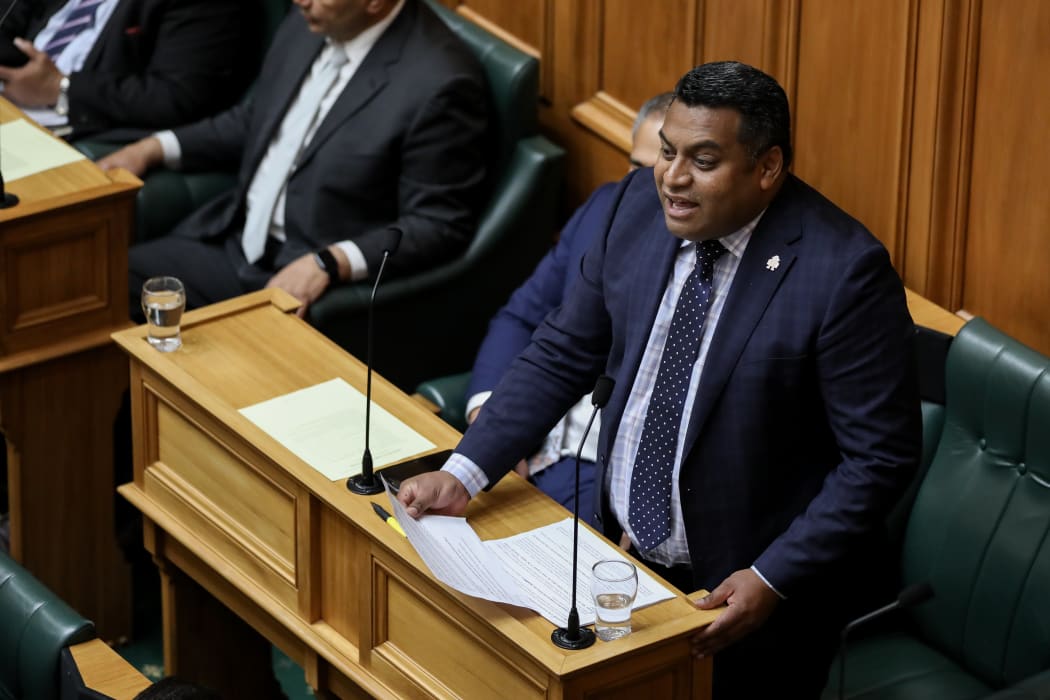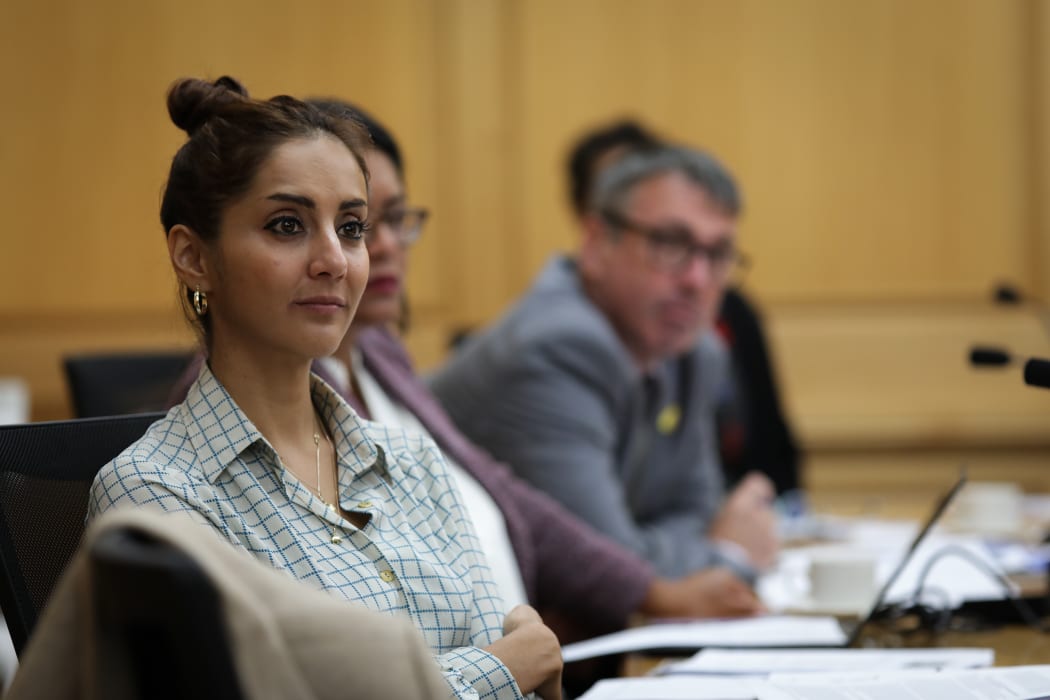Parliament’s business often develops themes.
Recently one of those themes has been on the security services - with a strong flavour of the threat from white identity extremist violence.
Security has come up repeatedly, there are two different bills entirely focussed on it, as well as questions in the House and even Select Committee consideration.

Labour MP Andrew Little debating in the House Photo: ©VNP / Phil Smith
Questions in the House
For example, on Wednesday in Question Time both Members of Te Paati Maori had questions for the Minister in charge of the SIS.
The questions related to threats the party and individuals had received, and particularly issues they had with the police response to those threats.
The underlying query was whether the security services take threats from white supremacists as seriously as they should, or a seriously as threats made by non-pakeha.
Questions about the security services or police are always tricky because the ministers want to stay clear of ‘operational matters’. They also don’t want to give much away about agencies’ methods or focus.
That may sound like a cop-out but when asked about cases they can hardly say ‘we have undercover operatives embedded in…’ or ‘we’re about to raid…’ or ‘we have approved surveillance warrants for…’. Saying anything could interfere with cases or any resultant court action.
MPs giving an opinion on Police or Security actions also gives risks making those services feel 'political' or at least politically influenced. Traditionally the Ministers in charge just stay well clear, and keep out of the day-to-day running of security operations entirely.
In this case Andrew Little’s responses were typically careful but included:
“…in light of the events of last week that that member and his colleague, Debbie Ngarewa-Packer, have brought to the nation's attention as well as to mine, there is clearly a need to ensure that the work that all Government agencies involved in national security are doing is responding effectively to those threats, bringing people to justice, and making sure that they and all members of the New Zealand community are safe.” - Andrew Little
Reviewing Security
As it happens, a step towards Andrew Little's ‘ensuring’ happened on Thursday when the House debated the first reading of The Intelligence and Security (Review) Amendment Bill. Timely, yes, but it was already on the Agenda for the week.
The Bill is incredibly simple. It changes a date in the Intelligence and Security Act so as to to bring forward the statutorily mandated review of both that legislation and the agencies it covers. It's not unusual for bills to include a future date for reconsideration - for example Radio New Zealand's legislation includes a regular timetable for reviewing the company's underlying Charter.
The Security review was set to begin in late 2022 but the plan now is to consider recommendations from the Royal Commission from as early as next month.
The Minister outlining that bill was, again, Andrew Little. Here's a moment from his first reading speech:
“The call for this change to this bill, which is really just changing a date in the bill, arose out of the report of the royal commission of inquiry into the attack on the mosques in Christchurch on 15 March 2019.
“The nation was horrified by that act. It was very much a threshold event for this country in understanding what threats we face and what we need to properly deal with and counter those particular threats, especially the threats of terrorism and specifically white identity violent extremism.” - Andrew Little
Redefining Terrorism
The Royal Commission recommendations have also led to a second bill currently before Parliament - the Counter-Terrorism Legislation Bill. The Minister in charge of this one is Kris Faafoi (Justice).

Labour MP Kris Faafoi in the House Photo: © VNP / Phil Smith
The Bill updates and expands offences associated with terrorist acts. It also further empowers the security services in their investigation of the same.
Briefly, it :
- Makes planning, preparing or training for a terrorist act an offence;
- Makes providing material support an office;
- Makes travelling through, to or from New Zealand to engage in terrorism an offence;
- Extends the powers of warrantless entry, search and seizure to the various new offences;
- And extends the control-orders regime for released terrorism offenders still considered a risk.
It also updates the underlying definition of terrorism. Terrorism would now be defined as an act:
- Carried out to advance “an ideological, political, or religious cause”;
- With the intention to induce “fear in a population” (it used to be “terror” and “civilian” population);
- To coerce or force a government or an international organisation to do or abstain from doing any act;
- It might include interference with critical infrastructure if likely to endanger life,
- or the introduction of a “disease-bearing organism”, if likely to “cause major damage to” the national economy of a country.
Note that ‘a country’ or ‘government’ doesn’t have to be New Zealand.
In line with recommendations from the Royal Commission the the Bill now more clearly covers planned or failed terrorism. It includes planning, attempting to carry out, or making credible threats to carry out a terrorism act. This would include weapons or combat training for the purpose.
During the first reading (last month) the counter-terrorism bill received support from both Labour and National. The Green Party expressed concern about whether security agencies were under-emphasising white supremacy as a threat because of a traditional focus on Maori or Muslims as threats. They and ACT were both concerned about the increase of police powers - the warrantless searches etc.
That bill is now being considered by the Justice Select Committee which is accepting written public submissions until June 25th.
Facebook and hate speech
And while we’re talking a combination of security and ‘white identity violent extremism’, here’s another occasion that theme popped up.
The Justice Select Committee has begun their review of the 2020 Election. On Thursday morning that inquiry heard from Facebook.

Green MP Golriz Ghahraman in Parliament's powerful Privileges Committee Photo: ©VNP / Phil Smith
In her questioning Green MP Golriz Ghahraman diverged slightly from the Election 2020 theme to comment that she felt Facebook wasn’t sufficiently protecting New Zealand from White Supremacist hate speech and threats.
She believed that Germany got better protection and asked whether that was because Germany’s hate-speech laws threatened Facebook with five hundred million Euro fines.
Speaking for Facebook Mia Garlick and Nick McDonnell responded that they treat every country similarly (based on global standards), and partner with New Zealand entities including the Police and Netsafe to do so; they do however work to comply with local laws if those require extra controls on content accessibility.
Mia Garlick noted that German law requires Facebook to make calls about the illegality of content - something they are not comfortable with.


